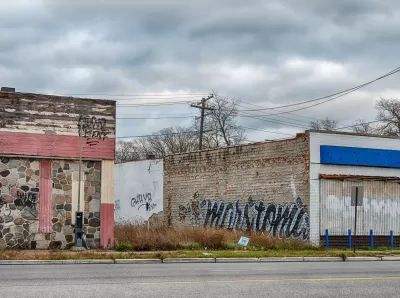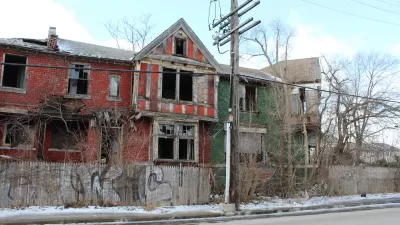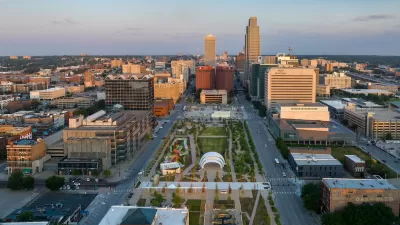Detroit Mayor Mike Duggan proposes hiking property taxes for vacant land and buildings while lowering the rate for occupied homes and businesses in a split tax plan he contends will resolve many of Detroit's blight and high property tax woes.

On Wednesday, Detroit Mayor Mike Duggan proposed hiking the city's property taxes for vacant land and buildings while lowering the rate for occupied homes and businesses in a split tax plan he contends will resolve many of Detroit's blight and high property tax woes.
The proposal, dubbed the Land Value Tax Plan, would increase taxes on land while reducing taxes on homes and structures by an expected 30 percent, or roughly $38 million total. This would apply to every neighborhood in Michigan's largest city, require, no application, and never expire.
If approved by the Michigan Legislature and later by Detroit voters, Duggan said, the plan would provide relief to homeowners who have been struggling under the burden of high taxes, encourage further neighborhood growth and hold land speculators accountable. Duggan laid out his plan Wednesday during an annual address at the Detroit Regional Chamber's Mackinac Policy Conference.
Currently, private owners own roughly 30,000 neglected lots that Duggan on Wednesday described as “cheap lottery tickets” that bet on an increase in land value with no actual investment in the property. The city is forced to cut grass in the lots and remove garbage to spare surrounding neighbors while the property owners pay about $25-30 a year in taxes.
“This is what is driving me nuts,” Duggan said. “In Detroit, blight is rewarded and building is punished.”
Under Duggan's plan, the average homeowner will see a $250 annual tax reduction, according to the mayor's office.
Owners of active businesses and land that is in productive use will also see their tax bills go down, depending on the taxable value of their assets. Currently, vacant residential lots in the city are taxed at an average of $25 annually, according to the mayor's office.
The program, which would be phased in over three years starting in 2025, would on average increase the millage rate on vacant land from 86 to 124 mills and lower the millage rate on a home from 86 to 60 mills, Duggan told The Detroit News.

Trump Administration Could Effectively End Housing Voucher Program
Federal officials are eyeing major cuts to the Section 8 program that helps millions of low-income households pay rent.

Planetizen Federal Action Tracker
A weekly monitor of how Trump’s orders and actions are impacting planners and planning in America.

Ken Jennings Launches Transit Web Series
The Jeopardy champ wants you to ride public transit.

Milwaukee Road to Get Complete Streets Upgrades
The city will reduce vehicle lanes and build a protected multi-use trail including bioswales and other water retention features on its ‘secret highway.’

Tackling Soil Contamination With Nature-Based Solutions
Los Angeles County residents and experts are turning to nature-based methods like bioremediation to address long-standing and fire-exacerbated soil contamination without resorting to costly and disruptive removal.

Rebuilding Smarter: How LA County Is Guiding Fire-Ravaged Communities Toward Resilience
Los Angeles County is leading a coordinated effort to help fire-impacted communities rebuild with resilience by providing recovery resources, promoting fire-wise design, and aligning reconstruction with broader sustainability and climate goals.
Urban Design for Planners 1: Software Tools
This six-course series explores essential urban design concepts using open source software and equips planners with the tools they need to participate fully in the urban design process.
Planning for Universal Design
Learn the tools for implementing Universal Design in planning regulations.
Ada County Highway District
Clanton & Associates, Inc.
Jessamine County Fiscal Court
Institute for Housing and Urban Development Studies (IHS)
City of Grandview
Harvard GSD Executive Education
Toledo-Lucas County Plan Commissions
Salt Lake City
NYU Wagner Graduate School of Public Service





























